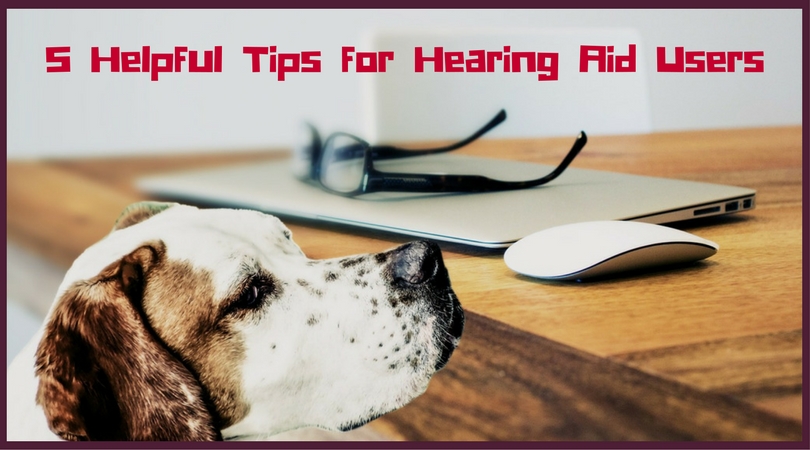Don’t let your doggie get a hold of your hearing aids… and other helpful tips for hearing aid users…
When we fit a patient with new hearing aids, we give them a lot of information on what to expect from the experience upon which they are about to embark. There’s a lot to the process of learning to hear again. Hearing aid users must create a new habit of putting the hearing aids in every day and taking them out every night. There are different settings and volume levels for different environments to learn to navigate through. There are steps like remembering to open the battery door when not in use, or simple cleaning or troubleshooting tips when an issue arises. And don’t forget the important process of training the brain to adapt, hear, and again use sounds that it has been missing for possibly years.
Related Article: The Importance of Follow-up Care For Hearing Aids
Because there is so much happening during this whole journey, we’ve thought up some helpful tips that may get lost:
1. Dogs eat hearing aids.
Even the good doggies. Hearing aids smell like you and are fun to chew up, so never leave your hearing aids where your furry friend might find them. This can be a costly lesson, not only in replacing the hearing aids, but your pet may actually get sick and need a visit to the vet.
2. Avoid moisture and hair products when wearing your hearing aids.
Keeping your hearing aids in the bathroom while you shower invites moisture into the microphones which makes them perform less than optimally. Similarly, spraying hairspray or other hair products into your hair while wearing hearing aids can wreak havoc on those microphone covers, making the hearing aids sound dim or even dead. Keep your hearing aids in a cool, dry environment when not in use, and apply products to your hair prior to putting them in for the best results.
3. Extreme temperatures can also cause inconsistent functioning of your hearing aids.
Don’t leave them in your car to get too hot or too cold. Treat them as you would any other electronic device.
4. Be patient and understand that it takes time for your brain to adapt to this “new normal” way of hearing.
Chances are your hearing loss took many years to develop, so it will take some time to learn to hear again. Wear your hearing aids as much as possible to quicken the adaptation.
5. If you aren’t happy with your hearing aids or feel that you aren’t hearing well, call your provider!
We love you and we love helping you hear! It’s our job and our passion! If you aren’t happy, we aren’t either. Follow up care is critical for this journey to be a positive and effective experience. Please never hesitate to call us or make an appointment with us to address your concerns. Chances are we can resolve any issue you can throw our way, and we’ll absolutely make every effort to do so.


